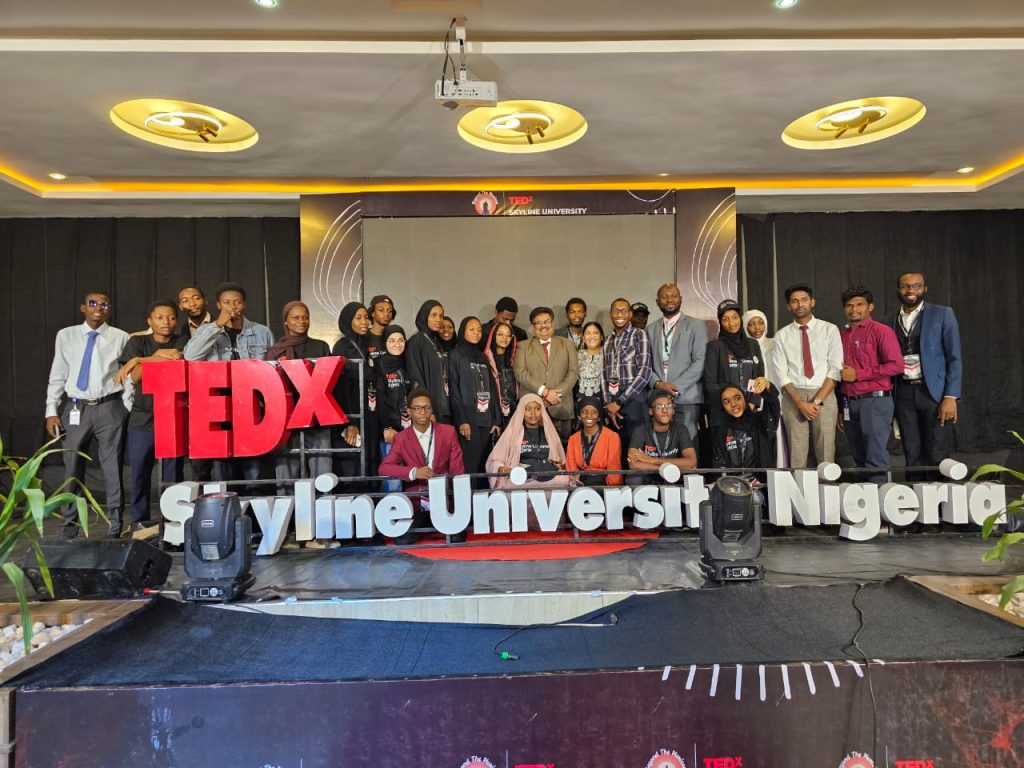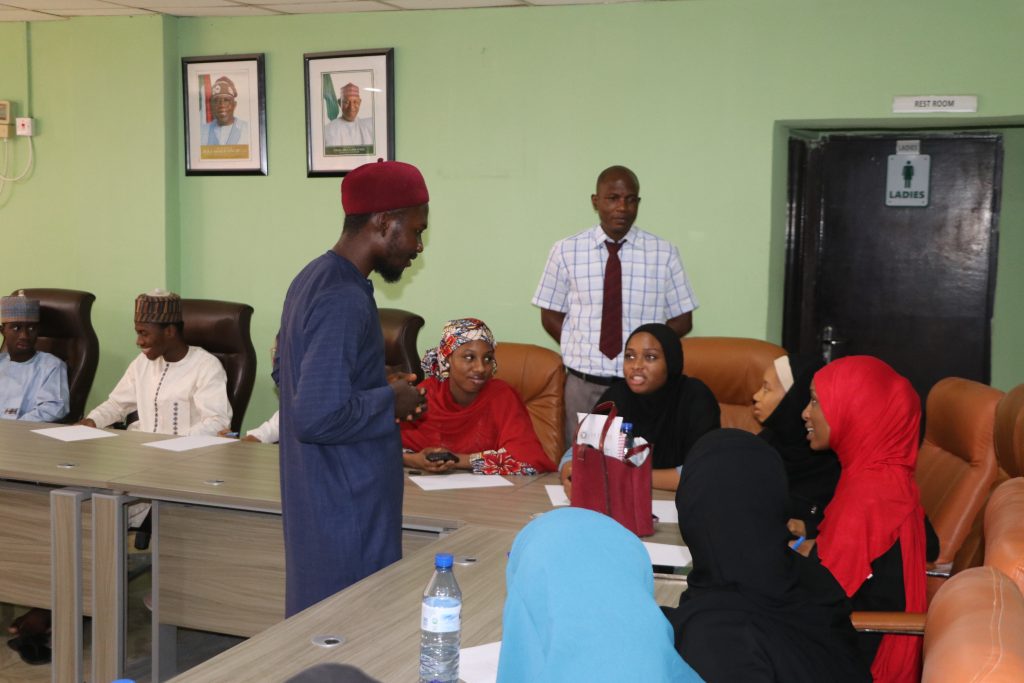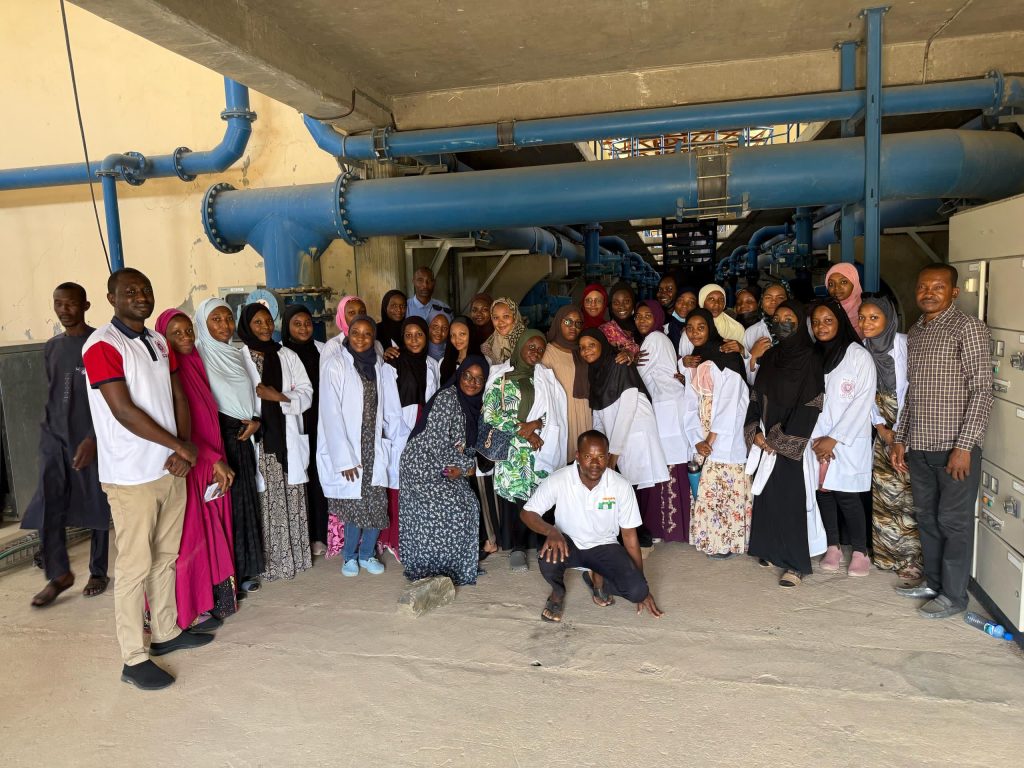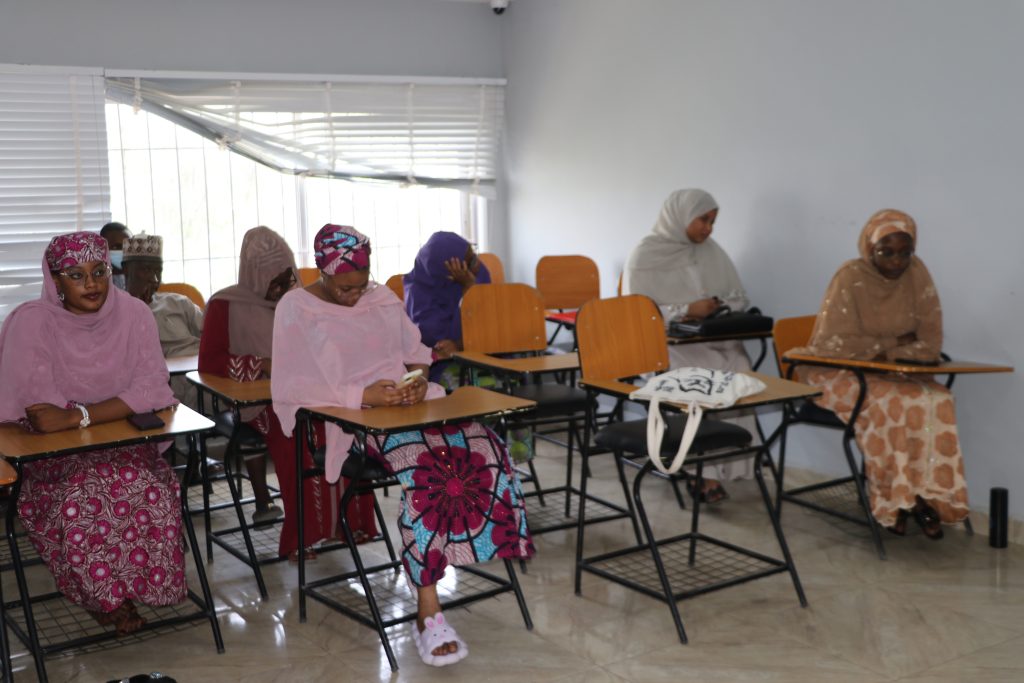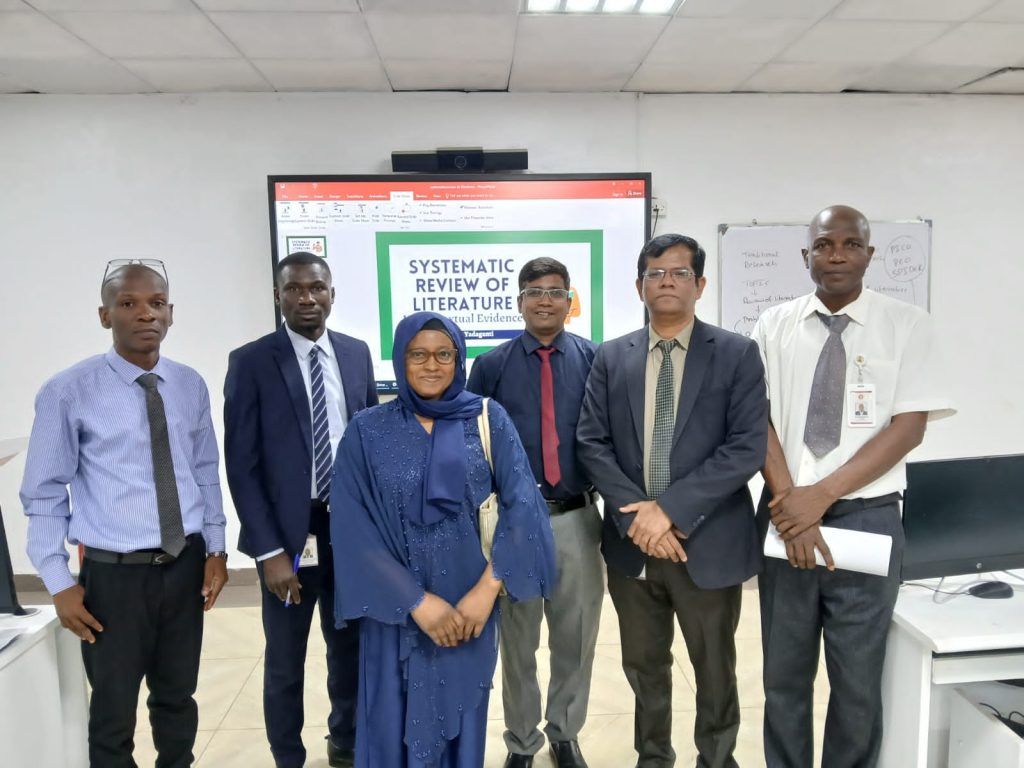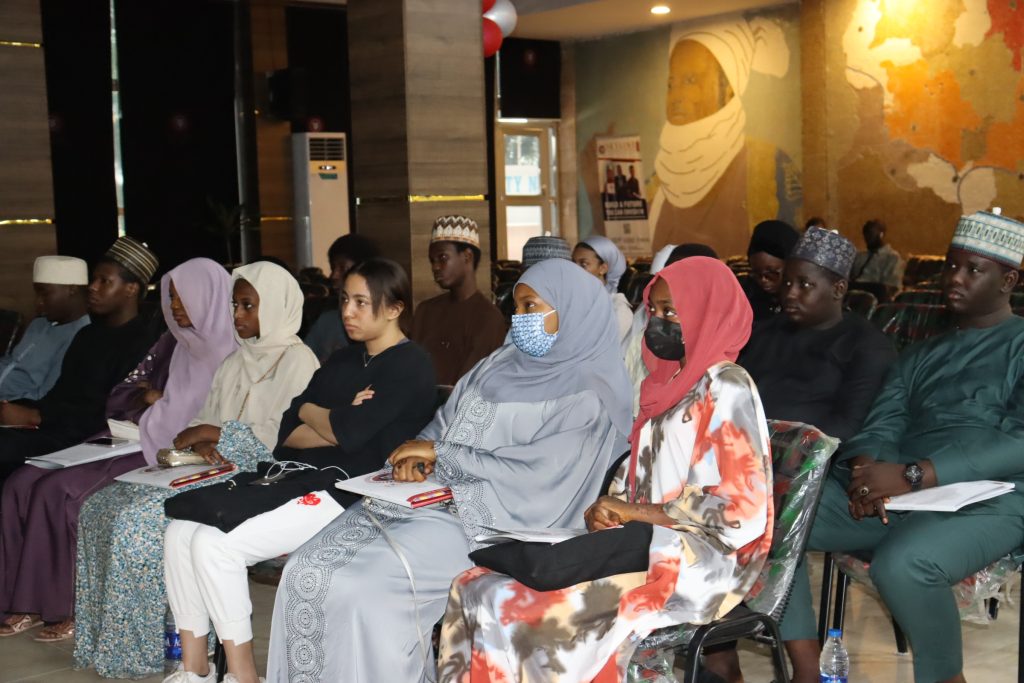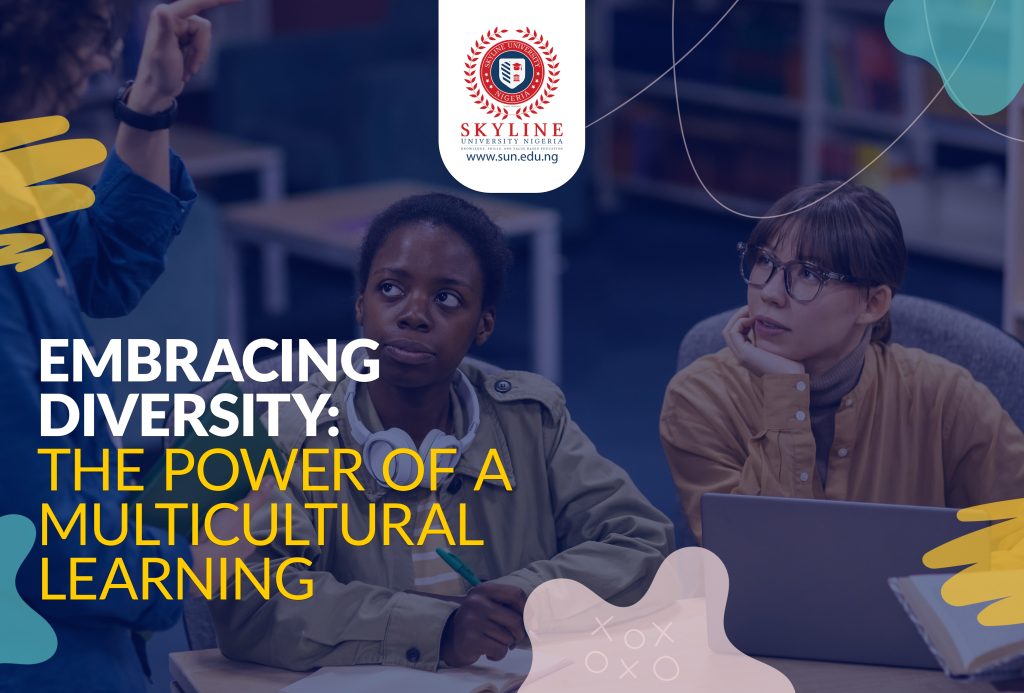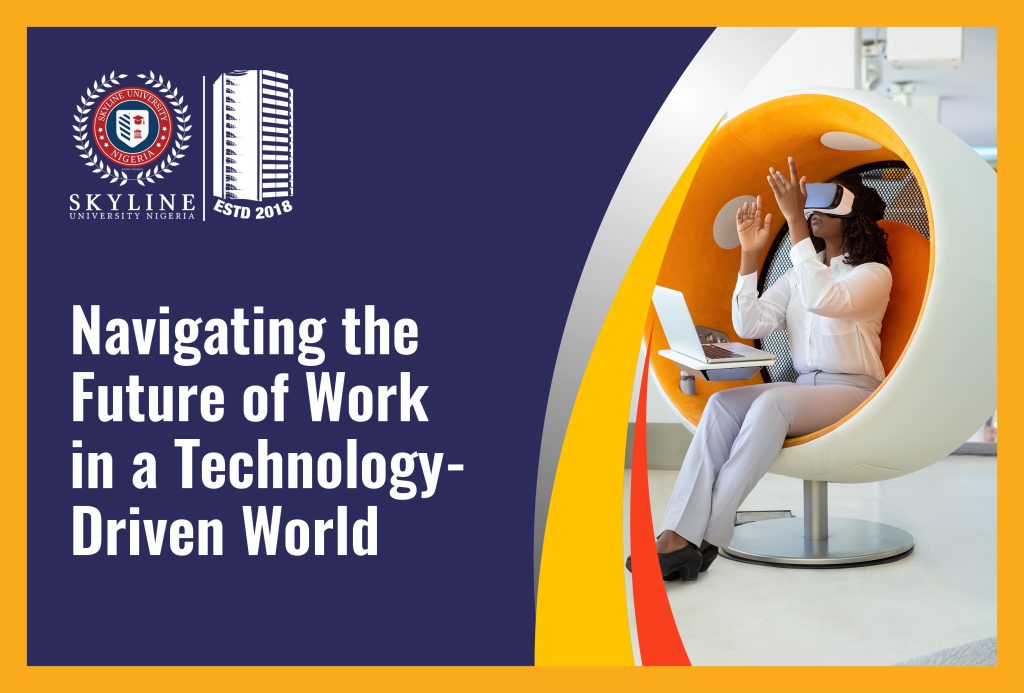Skyline University Nigeria hosts its first TEDX event
The management of Skyline University Nigeria (SUN) has today, April 7th 2025, hosted its first TEDx event at the university campus. The historic event was done in the university’s ultramodern Rabiu Musa Kwankwaso Auditorium. Themed Beyond the Horizon: Challenging the Norms, TEDXSkylineUniversity hosted vibrant speakers – Ms. Anju Ganglani, Mr. Bazallahi Muhammad, Ms. Jihanne Kashanna Dib, JohnPaul Johnson, Ms. Amina Ibrahim Manzo, Abdulhameed Abdulmumin, and Faith Ene Ejih. The event was graced by the Vice-Chancellor of SUN, Prof. Ajith Kumar V. V.; the registrar, Mr. Ahmed Muhammed Abdullahi; the Director of Marketing and Communications (DOMC), Mr. Abubakar Sadiq Isma’il; the Director of Public and Government Relations (DOPR), Ms. Sarada Maganti; the Head of Finance; and other principal officers of the university. Also in attendance were staff, distinguished guests from various spheres of life and students of the university. Delivering the welcome address on the occasion, Ms. Fatima Magaji, a student of SUN, welcomed all the participants to the historic event on behalf of the university’s management. She appreciated the management for the gigantic effort exerted to ensure the smooth conduct of the event, which included sourcing the best speakers for the event. Ms. Ganglani discussed the importance of kindness as a global language. She said it transforms information into knowledge, leading her to form an organization that works to promote kindness with youths from around the world. She defines kindness as her mission. In an interesting twist, Mr. Muhammad spoke on the concept of colours, which are more than a visual presentation. With his childhood attraction to the colour blue, he indulges the participants on how colours give a new perspective to life and how instrumental they are to realising one’s goal. In her remarkable speech, Ms. Dib, shared how education is beyond the classroom but more of a source for societal transformation. She defines it as a platform for awakening. She emphasised that societies must raise youths that will see failure as a necessary pathway for success. In their distinguished and impactful speeches, Mr. Johnson, Ms. Manzo, Mr. Abdulmumin, and Ms. Ejih spoke passionately about the importance of purpose, the uniqueness of individual journeys, and the power of perseverance in leadership. They each drew from personal experiences and professional insights to emphasise that true leadership is rooted in self-awareness, resilience, and the continuous pursuit of meaningful goals. The speakers encouraged the audience—especially emerging leaders and young professionals—to remain focused despite challenges, embrace failures as learning opportunities, and stay committed to personal growth and community impact. They all indulged leaders in reflecting deeply on their values, sharpening their vision, and taking actionable steps toward becoming agents of positive change in their respective fields. Delivering the closing remarks, Mr. Usman Balarabe Bello, lecturer in the Department of Mass Communication at SUN, sincerely appreciated the management of SUN for all the efforts they put in place for the success of the event. He specially thanked the Vice-Chancellor and the TEDx team at SUN for preparing and executing the event. He also applauded all the departments and staff and most especially the speakers that graced the platform. You can join the conversation on Facebook @SkylineUniversityNG and on Twitter @SkylineUNigeria
Skyline University Nigeria hosts its first TEDX event Read More »

